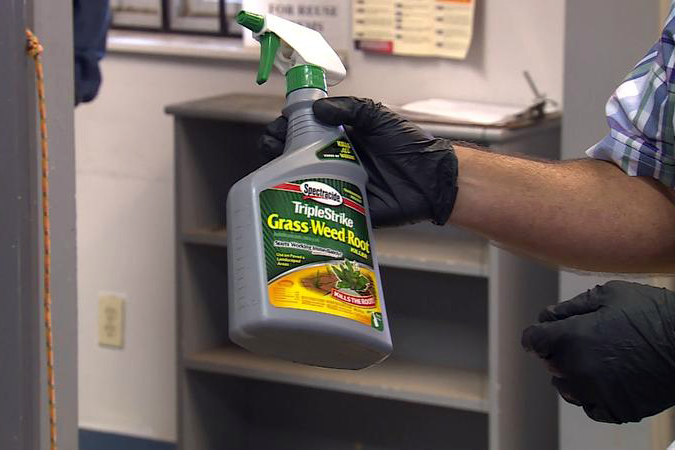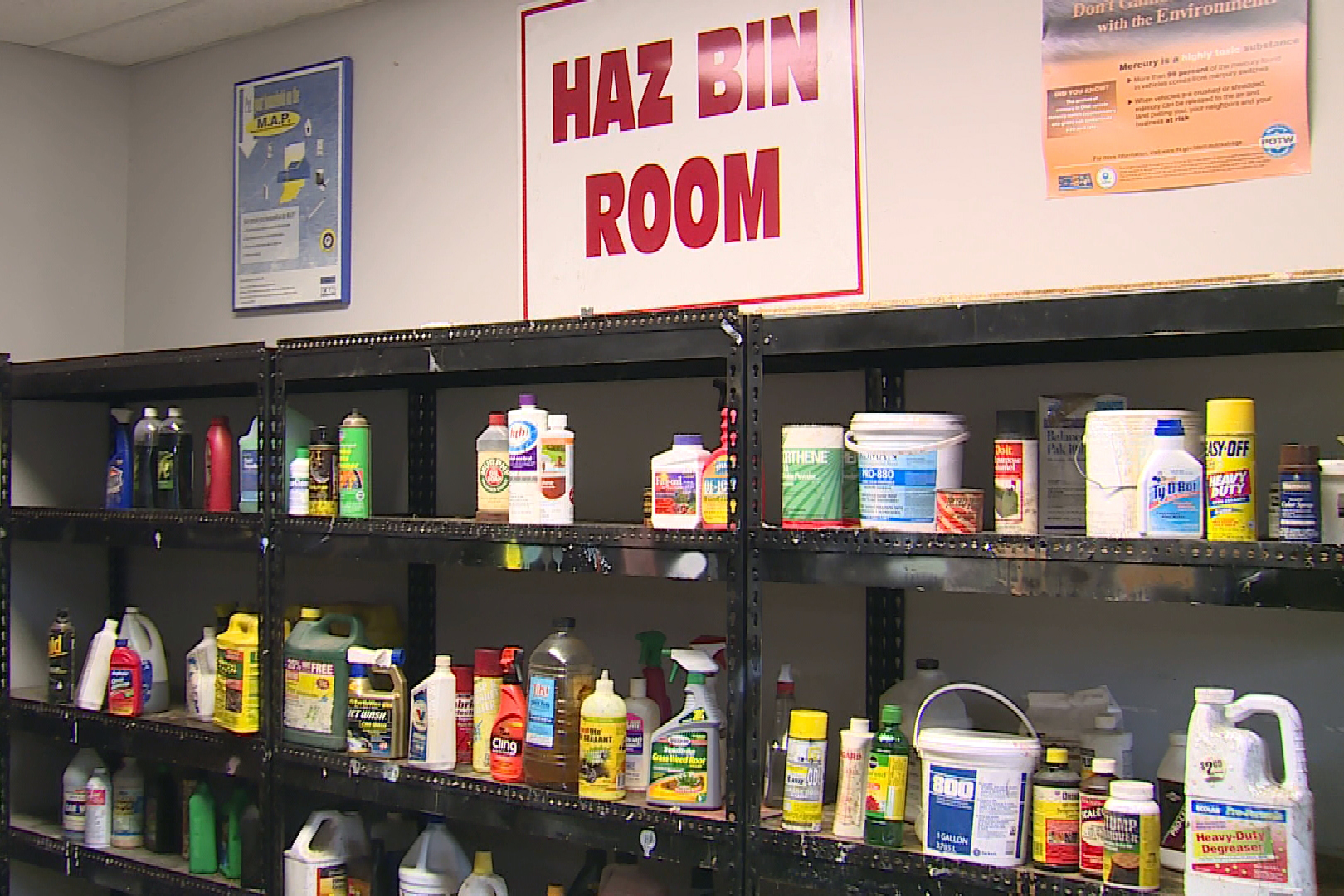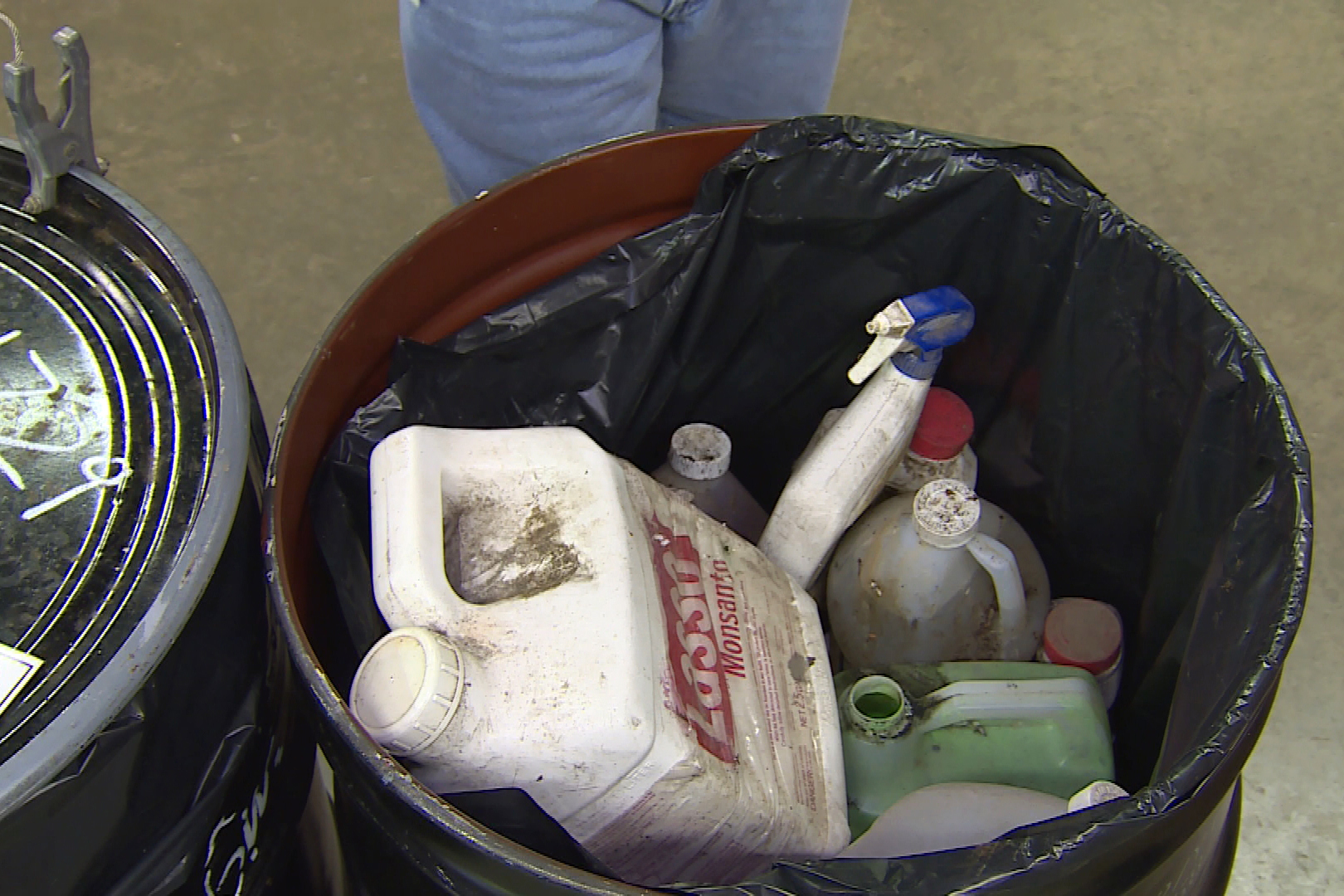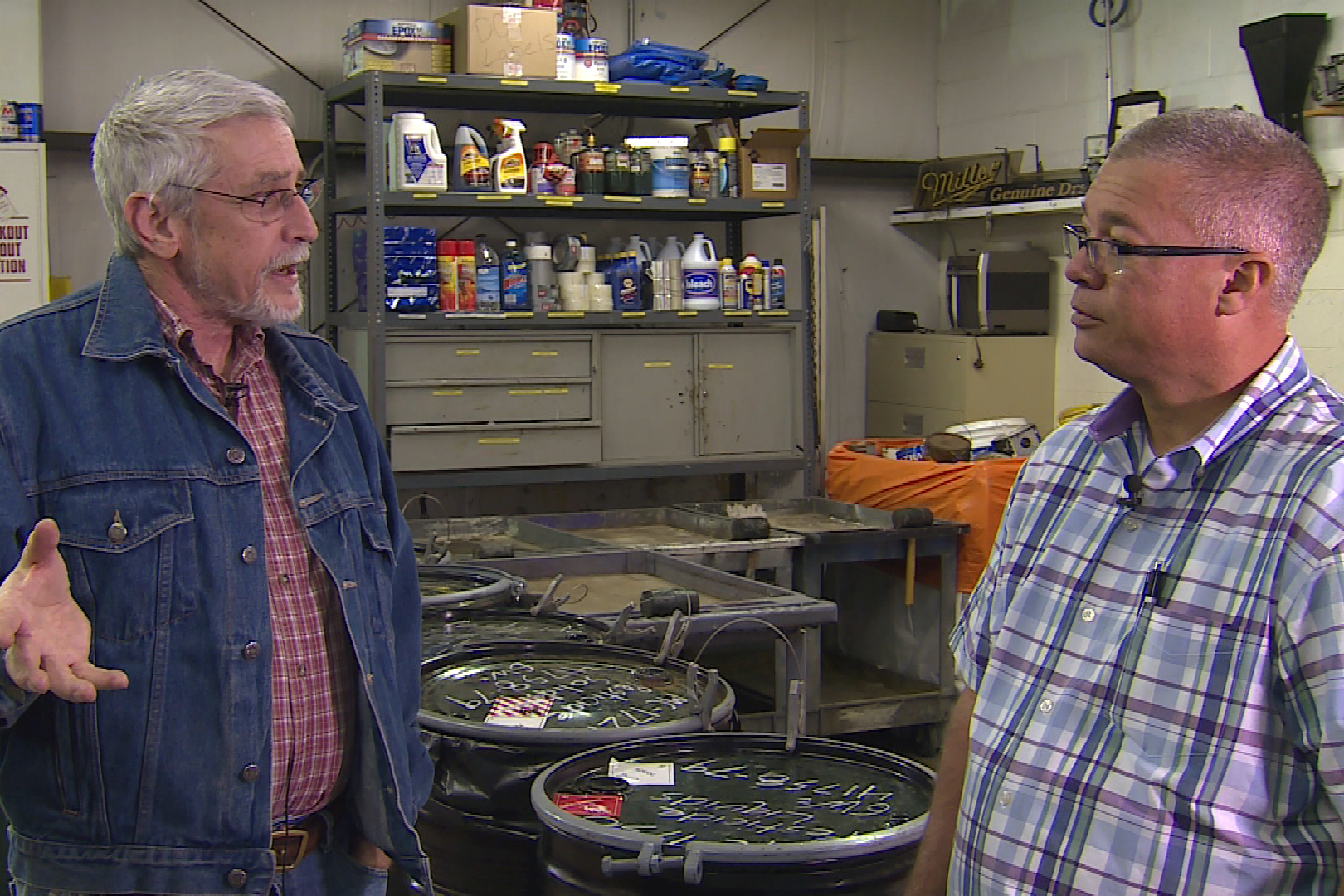
Monroe County Solid Waste Management District Operations Director Scott Morgan holds up some weed killer that another resident brought to the hazardous waste facility (Steve Burns, WFIU/WTIU News)
The Environmental Protection Agency doesn't recommend pouring leftover pesticide down a sink, toilet, on the ground, or in a storm drain. Pesticides — by their very nature — are designed to kill.
As part of the WFIU/WTIU News project Inquire Indiana, Bloomington resident Eric Rensberger wanted to know how to properly dispose of his weed killer.
The short answer is, you can drop it off at your local hazardous waste facility — which for Rensberger is at Monroe County Hazardous Materials in Bloomington, next to the recycling center on S. Walnut.
But how is Roundup disposed? And how do the workers that handle it stay safe? To answer these questions we asked Scott Morgan, the operations director of the Monroe County Solid Waste Management District.
“The biggest thing we take in terms of volume and commonality is paint — paint, electronics, household cleaners, pesticides, insecticides, herbicides,” Morgan says.
“All those kinds of things, so a lot of things that you’re going to find in your garage and under your sink.”
What happens to pesticide after you drop it off

Morgan says when people drop off their leftover pesticides, they first have to fill out a form.
“And then we’re going to take it back here to the scale and weigh it so that we can quantify, numerically, how much we’re diverting from a landfill,” he says.
If it’s still able to be used, and safe, it goes on a shelf where Monroe County residents can pick it up for free.
If not, the whole sealed container goes in a lined, 55 gallon steel drum. Once that drum is full, Morgan says it gets shipped to Indianapolis and eventually ends up at a facility in East Liverpool, Ohio, where it’s incinerated.

“And the reason they do incineration versus landfilling is because once you burn it, kind of your liability and your hazard goes away,” he says.
Morgan says the entire steel drum gets chucked in the incinerator.
“They’re able to pull that metal back and still recycle it after they’re done,” he says.
How hazardous waste employees stay safe

To listener Rensberger, this all sounds pretty, well, hazardous for employees.
"These people have to handle this and all kinds of other things," Rensberger says. "What precautions do they take and do you ever have to talk to employees about their own safety or their own concerns about the materials they’re handling?"
Morgan says the Monroe County hazardous waste staff goes through training every year.
"Complacency does happen on occasion I’m sure, but it’s something that we really try to pay attention to and help each other," Morgan says.
"Say, hey, don’t forget to put your gloves on, what about your glasses. If safety boots are forgotten, you know, hey don’t forget to put your safety boots on. Those types of things. So we really try to help each other remember to do things safely so that you go home to your family."
Morgan says the staff also gets yearly blood and urine screenings.
"We do about six or seven vials of blood where they’re checking heavy metals, you know everything possible where if we have an exposure in here, they’re going to medically see that and they can treat that based on what they see," he says.
Have a question you want answered?
WFIU/WTIU News wants to explore the questions you have about Indiana, and you could even be part of the process as we find the answers.
What about the Hoosier State, it’s culture, or people do you want us to explore? Go to indianapublicmedia.org/inquireindiana and let us know.
Indiana Environmental reporting is supported by the Environmental Resilience Institute, an Indiana University Grand Challenge project developing Indiana-specific projections and informed responses to problems of environmental change.







